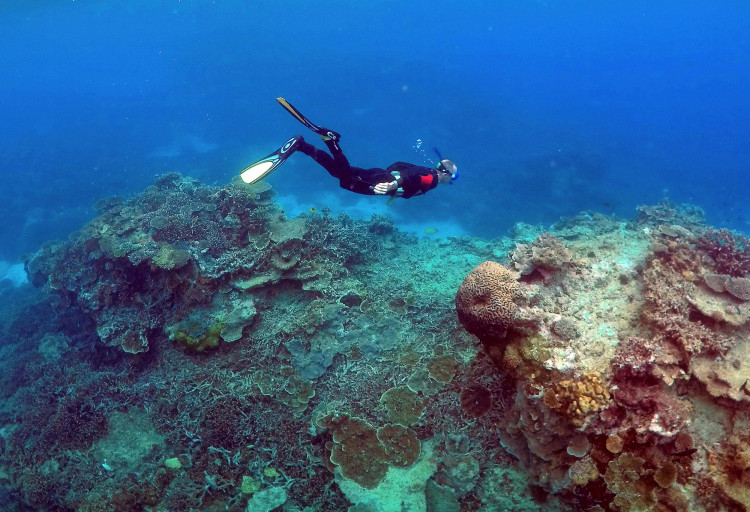A healthy reef has a complex "crackling, campfire-like" sound due to all the organisms that live on and in it, but a deteriorated reef sounds more barren, according to a team of scientists.
Hundreds of similar audio samples were used in a study by academics from British and Indonesian institutions to teach a computer software to listen to the health of a coral reef.
According to Ben Williams, a life sciences specialist and the team's principal researcher, the scientists expect that this new AI system will assist conservation organizations throughout the world track reef health more efficiently.
According to the team's study published in Ecological Indicators Journal, the artificial intelligence (AI) system parses data points such as the frequency and loudness of the sound from the audio samples and can determine with at least 92% accuracy whether the reef is healthy or damaged.
Coral reefs are under threat from human-caused carbon emissions, which have warmed ocean surfaces by 0.13 degrees Celsius every decade and increased acidity by 30% since the industrial revolution.
According to the Global Coral Reef Monitoring Network, 14%of the world's coral reefs were lost between 2009 and 2018, an area 2.5 times the size of the Grand Canyon National Park in the United States.
Coral reefs support more than 25% of marine species, including turtles, fish, and lobsters, although covering less than 1% of the ocean floor, making them ideal ground for global fishing businesses.
Syafyudin Yusuf, an Indonesian conservationist and lecturer at Hasanuddin University's marine sciences division, said the findings would aid in monitoring reef health in Indonesia.
The researchers also plan to collect underwater recordings from coral regeneration efforts in Australia, Mexico, and the Virgin Islands.
Nature does not create all ocean sounds. Humans are the most recent - and loudest - additions to these soundscapes. Consider the impact on your life if you lived right next to a freeway. That's how millions of fish and other sea creatures live when their courses cross shipping lanes, building sites, or areas where undersea drilling is taking place.
According to Julius Piercy, a U.K. government scientist who researches seas and associated noises, "we still don't know what 90% of fish sounds are." We don't know how our sound pollution is affecting our undersea world since we don't have the data to know what these ecosystems should sound like.
So, what are our options? Listen, admire, take notes-and do our best to preserve the marine symphonies taking place right under our noses.






